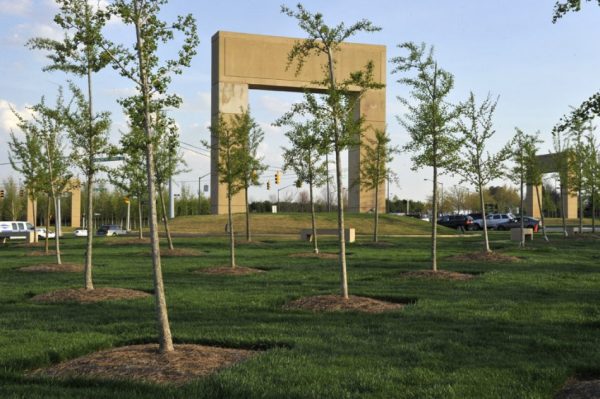Charlotte council wary of proposal to gut tree ordinance

Charlotte City Council members will consider strategies for lobbying against a state bill expected to be introduced that city officials fear would all but gut the city’s tree protection ordinance.
The proposed bill won approval on April 30 from an Agriculture and Forestry Awareness Study Commission, a group of legislative and gubernatorial appointees. Officials with the N.C. League of Municipalities have said they believe the proposed bill, as written, would cancel out entirely the tree rules that dozens of N.C. cities and towns have on their books.
Wednesday, the City Council Environment Committee, after a briefing, referred the bill to the council’s intergovernmental affairs committee to recommend strategies for lobbying against it if it’s introduced in the N.C. General Assembly. Whether the council would oppose it was not discussed at Wednesday’s meeting. Council member Ed Driggs indicated after the meeting that the full council opposes the bill. “I’m the Republican here, and I oppose it,” he quipped, alluding to the Republican-controlled N.C. legislature.
Deputy City Engineer Tim Richards told the committee the proposed bill is written in a sweeping way. “That’s very scary,” he said. (Read the draft of the proposed bill here.) The bill states that cities or counties “shall not adopt or enforce any ordinance, rule, regulation, or resolution that regulates … the removal, replacement, and preservation of trees on private property.” Like many N.C. cities, Charlotte has a tree ordinance. Charlotte’s ordinance requires 10 or 15 percent of existing trees be saved when property is developed and requires trees to be planted in new developments. It generally forbids removing trees in required tree-save areas or trees that were required to be planted – unless the owner gets a permit. (Click here to read the whole ordinance.)
Richards noted that 47 percent, or about 90,000 acres, of Charlotte’s land area is covered with a tree canopy; the city’s adopted goal is to increase that to 50 percent. Of those 90,000 acres, all but 5 percent is on private property. He listed the many ways trees help the environment – such as cleaning the air, cooling streets and cars, blocking light and noise, reducing storm water runoff – and said trees save the city money it would otherwise have to spend dealing with runoff and erosion.
Council member David Howard asked for more information about how the state study commission was put together and what it was assigned to study. “That they would go to such an extreme signals that they were not balanced, or that they are posturing,” he said.
Agendas posted on the commission’s website show that March 28, it heard a presentation from Iredell County nursery owner John Allen, who complained that government over-regulation was hurting the nursery business. One of the commission’s four co-chairs, Rep. Andrew Brock, R-Davie, represents part of Iredell County. Brock told the Charlotte Observer that he expects to co-sponsor the bill. He said local ordinances have over-reached and drawn complaints from across the state. “It’s the pebbles in your shoes that are getting businesses frustrated,” he said.
Other N.C. cities have been similarly concerned about the proposed bill. Wilmington city officials held a news conference earlier this week to oppose the tree bill. The Raleigh City Council voted unanimously May 9 to lobby against the bill. Said council member Thomas Crowder: “We’d obviously have to change our slogan from the ‘City of Oaks.’ ”